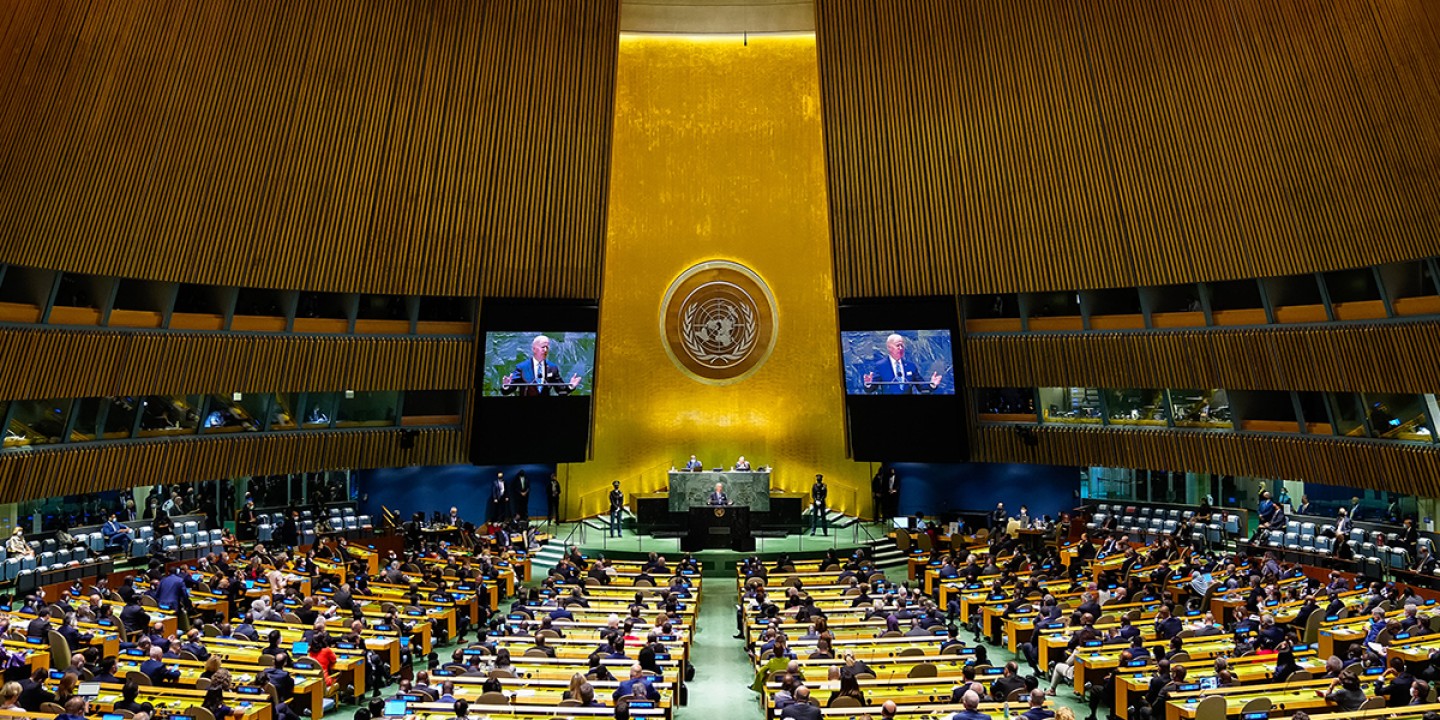The UN Security Council couldn’t stop Russia’s war against Ukraine
The need to reimagine its structure has never been greater.

The scene that played out at an emergency meeting of the United Nations Security Council on February 23, the day before Russia invaded Ukraine, was a devastating one. As the Ukrainian ambassador to the UN challenged the Russian ambassador about what his country was about to do, the moment was as poignant as it was pointless. The paralysis of the UN as a political body was painfully evident.
One increasingly evident flaw that prevents the UN from taking effective action in situations like this one is buried deep in its founding documents. The UN came into being in 1945, in the aftermath of World War II, with one central mission: maintaining international peace and security. The permanent members of the UN Security Council—the core group given sole responsibility for establishing peacekeeping operations, enacting international sanctions, and authorizing military actions—consisted of the five main powers that had just led the Allies to victory in the war: Great Britain, France, China, the United States, and the Soviet Union.
But this alliance had long been a fragile one, and at the Soviets’ insistence, each of these five countries was granted veto power over any Security Council resolution. When the Soviet Union collapsed in 1991, its membership was transferred—controversially—to the Russian Federation. This February the Security Council could only stand by helplessly while one of its permanent members used its veto power to violate the spirit and the letter of the council’s mission.
Multiple proposals for reforming the UN Security Council are continually before that body. None of them addresses the core flaw: a member can be removed from the UN for persistently violating principles of the UN Charter, but only by a vote of the Security Council—a vote subject to veto by any of the five permanent members. In other words, Russia would have to vote in favor of its own dismissal. There is no process outlined in the UN Charter for how a permanent member of the Security Council can be removed, no matter how egregious its actions. There is likewise no system by which a member can lose its good standing or regain it.
The need, however, to reimagine a global organization whose work is to create conditions for peace and security has never been greater. A widening gap exists between democratic nations and authoritarian ones—a gap the UN is not designed to address.
While there is a standstill at this critical level of the UN’s functioning, the UN has proved effective at supporting grassroots movements for peace, work that exists outside the purview of the Security Council. It is worth asking: What might an international body look like that required member nations to live up to particular standards of democracy and peace and that had mechanisms for evaluating and enforcing these standards?
Whether the UN can remake itself into an effective instrument of peace amid today’s geopolitical circumstances is an open question worthy of debate. The answer is not found on the Security Council.
A version of this article appears in the print edition under the title “Why the UN couldn’t stop Russia.”



